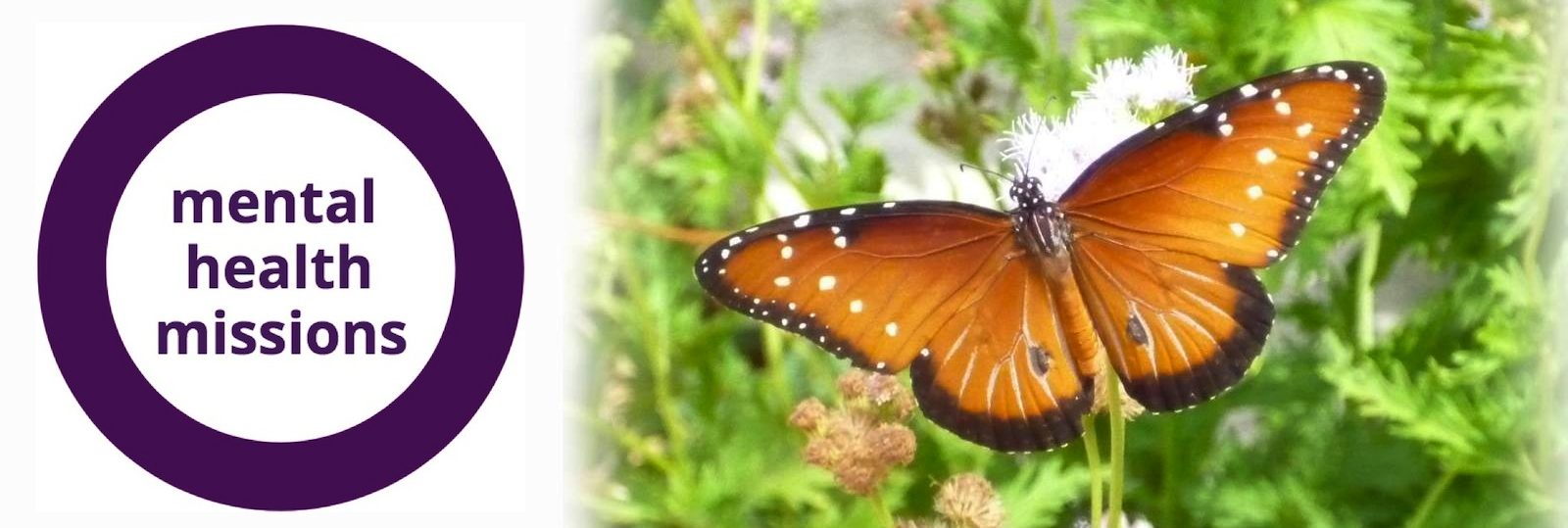Therapist Khara Croswaite Brindle didn’t think there was a viable, efficient way to adequately assess for risk of suicide. So, she created one. Yes, there’s an app for that
by Melanie Taussig
For Khara Croswaite Brindle the mission of suicide prevention was always a personal one. By the time she was 18, Ms. Croswaite Brindle had lost two family members to suicide. At the point when she started working as a mental health counselor in 2010, suicide prevention was at the forefront of her efforts. She had devoted her career to working with at-risk youth and families and was seeing a great dealt of suicidal ideation in the populations she served. She yearned to make a difference. Ms. Croswaite Brindle recounts the day several years ago when she was sitting in her office speaking with a professional coach about how she could maximize her impact. Ms. Croswaite Brindle’s patients were often suicidal and she observed there to be gap in available tools to adequately assess the populations she was working with. Concerned about patient safety, Ms. Croswaite Brindle surmised there to be a better way.
It was a group of “very green” therapists all of whom had recently graduated from university and who she was mentoring, that gave Ms. Croswaite Brindle the inspiration to create a suicide screening assessment tool herself. This tool came to life in the form of an app. It was, after all, 2017. Ms. Croswaite Brindle named the app CACS, an acronym for Community Assessment and Coordination of Safety.
Community Engagement
The concept of community has always been the foundation of CACS. Passionate about helping underserved populations, Ms. Croswaite Brindle wanted CACS to have a far reach and it was of important to her the word “community” be included in the title of the app. While the function of CACS is to assess for suicide, Ms. Croswaite Brindle was methodical in her decision not include the word “suicide” in the name. She acknowledges the stigma that exists within the word and didn’t want that connotation to deter anyone from collaborating with her in this venture. When CACS was first created, Ms. Croswaite Brindle sought to establish partnerships with law enforcement and public safety departments. “I didn’t want [the word suicide] to take away from the opportunity to coordinate with another organization in a different industry,” says Ms. Croswaite Brindle.
In the time since she launched the CACS app two years ago, Ms. Croswaite Brindle founded Catalively, a nonprofit organization, which supports ongoing access to the app for both mental health and school professionals. CACS is not just another app; Ms. Croswaite Brindle sees this as instrument that can quite literally save someone’s life. That verity is something Ms. Croswaite Brindle takes very seriously and she is tremendously cognizant of the task she has taken on, one that she has come to consider a responsibility.
Suicide rates have continued to climb in the United States. In 2017, the Centers for Disease Control reported suicide to be a leading cause of death amongst Americans and the second leading cause of death among individuals between the ages of 10 and 34. These statistics are staggering and Ms. Croswaite Brindle has made it her life’s work to address this public health crisis.
The impetus for creating CACS, was for “mobility, to streamline the [suicide assessment] process and most importantly, to make sure mental health therapists were asking the right questions [about suicide prevention].” Observing new graduates who were entering into the counseling profession, Ms. Croswaite Brindle’s saw firsthand how many were ill prepared to ask the important questions. To her horror, Ms. Croswaite Brindle came to learn that many of the therapists who had recently graduated with Maters Degrees were not only uncomfortable assessing patients about suicidal thoughts, they were completely uncertain about what questions to ask. It would be helpful, thought Ms. Croswaite Brindle, to have an easy and efficient way to help these new mental health professionals.
CACS is a screening tool designed exclusively for mental health professionals. It was developed using existing evidenced based sources, which was important to Ms. Croswaite Brindle as this establishes both credibility and reliability. CACS is currently being used by over a hundred mental health professionals in Colorado. In addition, there are eight charter schools in Denver that have signed on for a pilot program using a version of the app specially designated for school based mental health professionals. Thus far, the results of that study have been positive; 86% of patient risk assessed from use of CACS corresponds with the widely-used and evidenced based Columbia-Suicide Severity Rating Scale. Although CACS is digitally based and requires use of the Internet, patient responses are anonymous, no private health information is stored, and the app is in compliance of all HIPAA regulations.
Ms. Croswaite Brindle indicates that that CACS is a “secondary tool,” meaning is intended to be used as a supplement to a practitioner’s clinical judgment. Why then the need for CACS? For one, Ms. Croswaite Brindle indicates that therapists “like to have a paper trail which documents [a patient’s suicidal ideation]. For therapists who are new to the field this is a tool that allows them to know what to ask because most students haven’t had formal suicide assessment training [in their counseling programs].” CACS also guides professionals to an abundance of community resources ranging from individual therapists to intensive outpatient programs to psychiatric hospitals. Ms. Croswaite Brindle explains that resources are an integral part of the assessment process and knowing available options can help professionals determine the best course of treatment for a patient. Ms. Croswaite Brindle indicates that oftentimes when therapists have a fear that a patient has suicidal ideation, they are quick to recommended psychiatric hospitalization. “Sometimes the hospital isn’t the right option,” she says, explaining how there are often suitable alternatives for patients who don’t require the highest level of care and can remain safe in a different environment. “Maybe we can figure out another option. The hospital should be the last option in my professional opinion.”
When designing the app, Ms. Croswaite Brindle was committed to making sure the assessment was both comprehensive and efficient. The CACS assessment can be completed in approximately 20 minutes. When running focus groups with area therapists to learn how they assess for suicide, it was discovered that in some instances a formal suicide assessment could take as long as three hours. Ms. Croswaite Brindle was incredulous to this information, particularly when these time-consuming assessments were occurring at schools where there can be as many as sixteen hundred students to one mental health professional. Such ratios are not uncommon in rural and underserved areas. “I think we can do better”, says Ms. Croswaite Brindle, her disbelief imploring her to ask the question, “can we give you a tool that’s a game changer?” She believes the answers lies within CACS.
Technology—a game changer in a changing world
Technology is quite literally changing everything around us and the healthcare and mental healthcare industries are not exceptions. Ms. Croswaite Brindle is unwavering in her belief that technology based assessments and treatment are the way of the future. She points out that many medical offices are using electronic medical records and that it is not uncommon for patients nowadays to complete intake paperwork online or on a tablet. It is also common for therapists to use technology for scheduling appointments and many mental health professionals are suggesting mental health apps for patient use.
As technology is second nature to most Millennials and Gen Zers, the idea of a therapist utilizing an app can be appealing because it is familiar. Ms. Croswaite Brindle says that the overwhelming response to CACS has been positive and in the rare instances when she does encounter skeptics, it is usually the result of an individual feeling uneasy about technology in general. While seasoned therapists can rely on clinical experience in the patient assessment process, Ms. Croswaite Brindle considers CACS to be additional insurance for patient well-being. She understands that resistance to new systems is standard but believes that if mental health professionals are not utilizing available technological tools, they “may be missing something vital.” With regard to concerns about patient confidentiality, CACS was developed in compliance of all HIPAA regulations and although use of CACS is digital, no patient identifying information is stored online.
Difficult times mean difficult conversations
Ms. Croswaite Brindle concedes that times are trying, particularly for young people and adolescents. She postulates that the tempestuous times we live in likely contribute to increasing rates of suicide. Research being tracked in the school-based pilot suggests that adolescents are experiencing an overabundance of mental health issues, including suicidal ideation, due to a combination of factors that include sleep disruption, low distress tolerance, and a lack of healthy coping skills. Ms. Croswaite Brindle speaks about the impact social media has on the mental well-being of teenagers. “This generation has told us they feel pressure to perform and the need to be perfect. They feel isolated and that everyone else has it figured out.” Ms. Croswaite Brindle details how destructive it can be for an individual to constantly be aspiring for perfection. Not only is such thinking unrealistic, Ms. Croswaite Brindle indicates the immense demands of being a teenager combined with heavy social media use and a rigid mindset toward precision all create a “perfect storm.” This has led to “the most anxious and depressed generation that we have ever seen.”
Her goals may seem lofty but Ms. Croswaite Brindle is ambitious. She considers CACS to be a “gatekeeper,” a preliminary step in the suicide prevention process and she is striving to get CACS into the hands of all mental health professionals. Although CACS is only available in Colorado right now, there are plans to expand nationally. Ms. Croswaite Brindle ultimately aspires for CACS to be endorsed by SAMHSA (Substance Abuse and Mental Health Services Administration), a federal entity which could take CACS to all 50 states and possibly internationally. She recognizes there are obstacles ahead. At current, some of the greatest challenges are that of funding. For the therapists who are currently using CACS, there is a nominal monthly fee, which generates a minute amount of revenue. In addition, the Catalively organization has been tirelessly applying for grant funding. Thus far, CACS has largely been subsidized by Ms. Croswaite Brindle herself.
Ms. Croswaite Brindle believes that CACS is at the crux of a question, which is a greater collective conversation: how does society talk about and portray suicide? Ms. Croswaite Brindle is aware this is a topic that can elicit raw emotion, fear, and controversy. “People want to know why [suicide] is happening,” says Ms. Croswaite Brindle referencing countless discussions she has had with community members and parents. She also worries about the negative and dismissive way suicide is often portrayed in the media. “I think we [society] have a pretty negative portrayal of what therapy is like when it comes to suicide,” says Ms. Croswaite Brindle. When it comes to people experiencing suicidal thoughts she says, “I think we need to keep engagement as the first focus”.
Beyond the “labor of love” that CACS is to Ms. Croswaite Brindle, she sees her creation as a way to effect betterment amongst an issue that has always been at the center of her life’s work. She wants to empower individuals to be a part of the conversation about their own mental health, well-being, and treatment. Ms. Croswaite Brindle shares a recent story about a 12 year-old female patient who was experiencing suicidal thoughts and had a family history of suicide, which elevated her risk level. The girl was very resistant to talking about how she was feeling. When asked if she would be open to her therapist using “an app”, she was immediately receptive. That led to a positive exchange; the girl opened up about her feelings and was involved in the decision making process about her own mental health treatment and goals. Thinking back to that success story, Ms. Croswaite Brindle smiles, knowing that all of her laborious efforts are worth it. “I see that as the victory that we are trying to portray.”
Ms. Croswaite Brindle is a Licensed Professional Counselor in Denver, Colorado. Catalively is a 501c(3) organization. To learn more about the CACS app and to support the efforts of Catalively and suicide prevention, click here.

Therapist, Khara Croswaite Brindle, founder of Catalively. Photo courtesy of Ms. Croswaite Brindle.


 by
by 

